
English | 中文

Transformation opportunities brought by best practices
source:goldencsr date:2022-08-01 09:11:02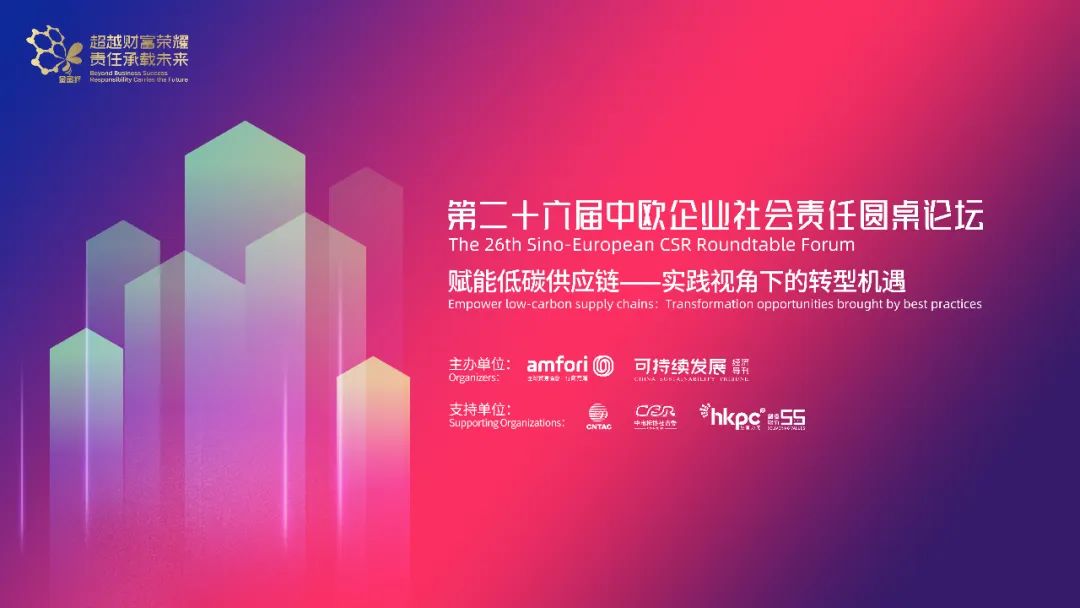
On July 21, 2022, the 26th Sino-European CSR Roundtable Forum, organized by the amfori and China Sustainability Tribute, was held both online and offline in Beijing.
Focusing on "Empower low-carbon supply chains -- Transformation opportunities brought by best practices", the forum invited representatives and experts from governments, industry associations and multinational companies to share useful management experiences and provide constructive opinions on green sustainable development, low-carbon supply chain management and international green trade in the context of the carbon peak and carbon neutrality goals from the perspectives of policy and practices, charting a viable green development path for enterprises at home and abroad to help them transform and upgrade.
Favorable policies lead to green economic development
To achieve carbon peak and carbon neutrality is a broad and profound systematic change in both economy and society. Low-carbon and green development, which involves every facet of economic and social development, will reshape the development mode and industry chains of all industries.
According to the data from World Economic Forum, the carbon emissions of eight supply chains, namely food, construction, fashion, FMCG, electronic products, automobile, professional services and freight transportation, account for more than 50% of global emissions. The green management of supply chains has a bearing on the future pattern of global sustainable development. Moreover, new requirements has been put forward for the green supply chain management based on the control of emission and carbon reduction, which also determines whether the global action against climate change can yield positive results.
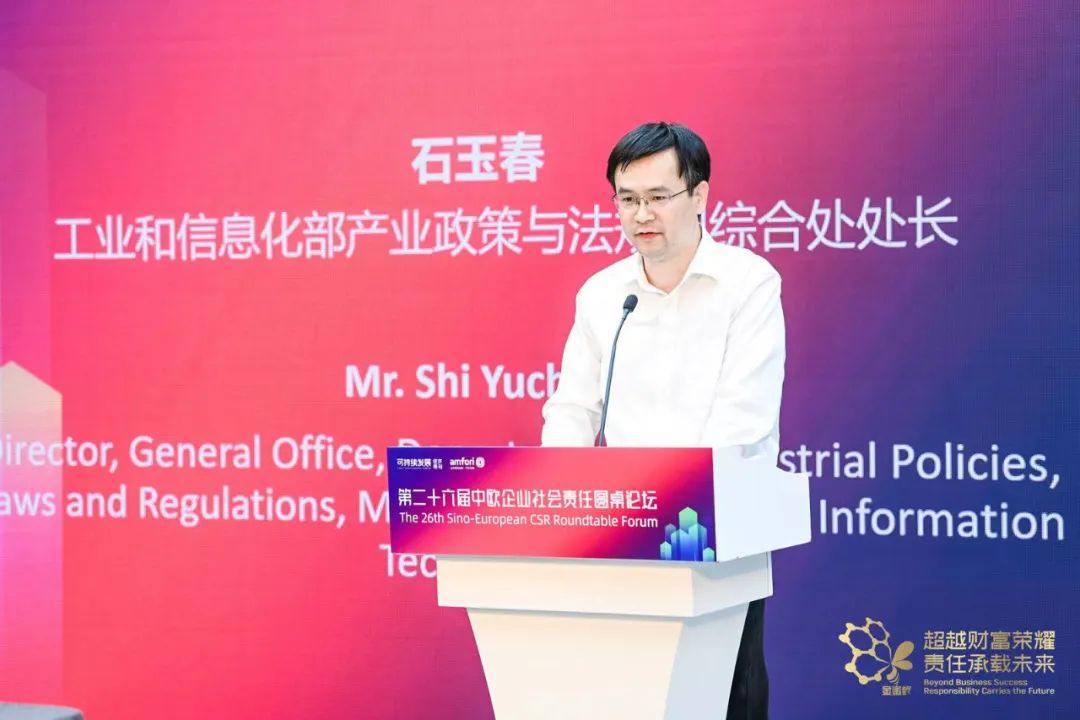
China has always insisted on the new development philosophy and the path characterized by ecological priority and green and low-carbon development. In his welcoming address, Shi Yuchun, Director of the General Office in the Department of Industrial Policies, Laws and Regulations under the Ministry of Industry and Information Technology (MIIT), introduced that China has successively issued policies and guidelines such as Guidance on Actively Promoting Supply Chain Innovation and Application and Guiding Opinions on Accelerating the Establishment and Improvement of Green and Low-carbon Circular Economic System issued by the State Council. These policies provide an institutional environment conducive to the sustainable development of supply chains. China also promotes green production and manufacturing. All of these contribute to the green transformation of global supply chains. The MIIT has also been actively promoting energy saving and low carbon transformation in the industrial sector and provides support and guidance for building green supply chains.
When analyzing global policy trends, Linda Kromjong, President of amfori, mentioned that Both Norway and Germany have rolled out the due diligence laws on Supply Chain and Transparency in 2022 and 2023. The EU Corporate Sustainability Due Diligence Directive (CSDDD) goes a step further by taking a value chain approach, and the first group standard of China, ESG Disclosure Guidance was also released. We see there is an increasing trend of national level legislation to achieve low-carbon supply chains. Supply chain due diligence has become a must for enterprises.
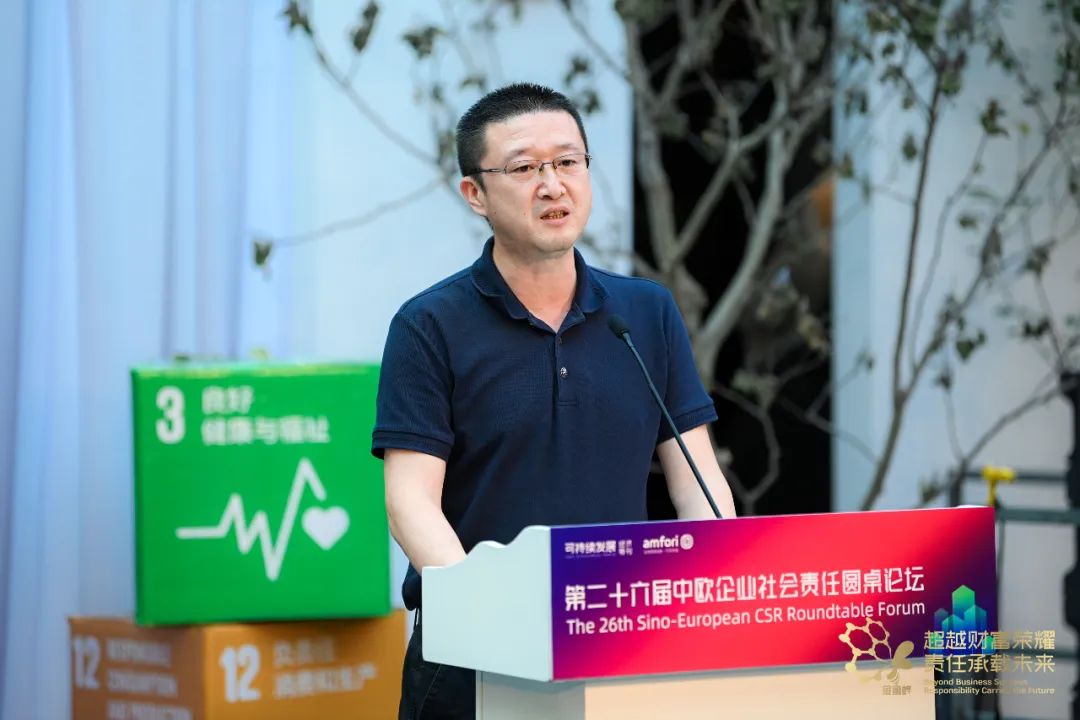
China now has entered the 14th Five-Year Plan period. By 2025, the circular production method will be implemented across the broad, green design and clean production will be widely promoted, the comprehensive utilization of resources will be significantly enhanced, and the resource recycling industrial system will be established. Zhao Kai, Executive Vice president at China Association of Circular Economy, said that the development of circular economy is one of the important paths to achieve the carbon peak and carbon neutrality goals. There are, in particular, six important areas to support carbon emission reduction, namely, the promotion of the recycling of resources, the reinforcement of the comprehensive utilization of bulk solid waste, energy utilization of biomass waste, waste heat and energy recycling, the boost of the circular development of industrial parks as well as remanufacturing. Looking forward to the 14th Five-Year Plan, we stay positive that the comprehensive contribution of the circular economy to China's carbon emission reduction will reach 30%.
Industry associations provide tools for low-carbon transition
Industry associations and organizations play an important role in driving the green global economic and social transition. In response to the European Green Deal, amfori is working with members to support industry partners in measuring their carbon footprint and carbon impact by using a range of tools such as the Business Environmental Performance Initiative (BEPI).

In 2021, amfori decided to take BEPI to the next level to help enterprises improve the carbon emission management along the supply chain. amfori rolled out BEPI 2.0 pilot program in China and Bangladesh with over 40 business partners participating. BEPI to date is used by 912 amfori members and 1,521 producers across 15 industries. key industries include clothing/footwear; household/furnishings & toys & accessories.
For future development, Linda is full of confidence: "The current crisis is an opportunity to strengthen in-depth cooperation and make the economy more sustainable. We must seize this moment and move forward together. China & Europe should continue in exerting positive influence & leading the world to a more sustainable and green recovery & development."
Leading enterprises take pioneering action
For companies, the low-carbon transformation of the supply chain is not only a response to the trend of the times, but also an inevitable choice to improve market competitiveness. In July 2022, the European Commission proposed the establishment of the Carbon Border Adjustment Mechanism (CBAM). It covers a number of industries including steel, aluminum, cement, fertilizer, electricity and plastics, and specifies punitive measures.
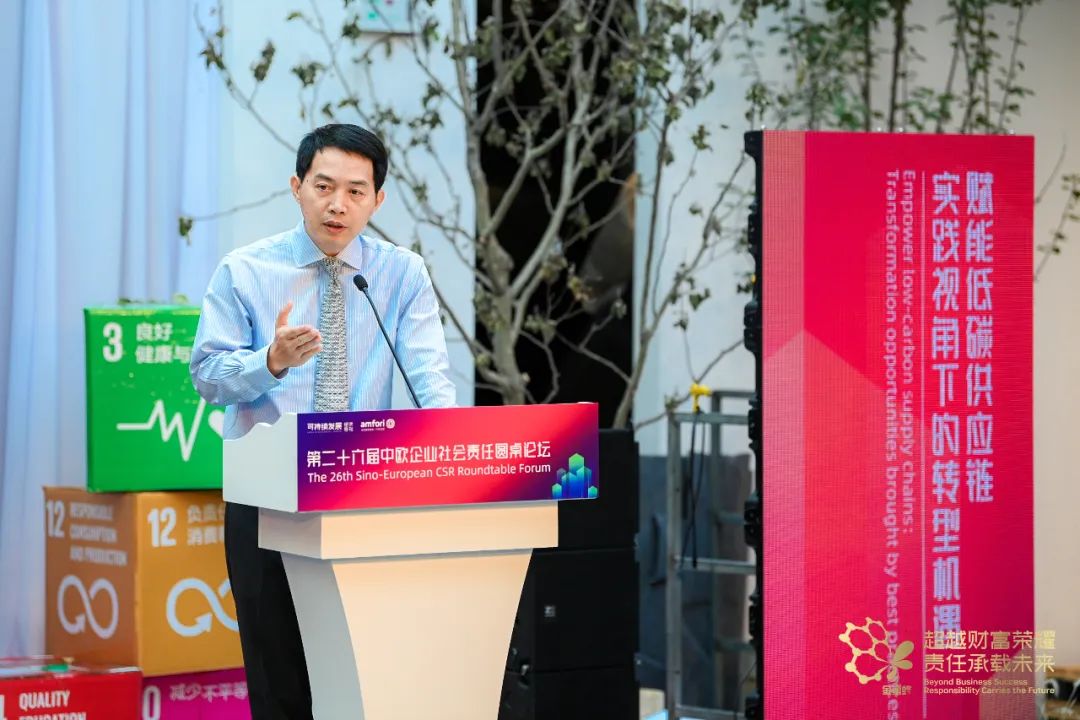
For Chinese companies, He Yuping, Partner of the Broad & Bright Law Firm, suggested that there is no need to be anxious. However, plans for carbon layout must be made early to accelerate carbon transformation and close attention should be paid to the progress of the EU carbon tariff legislation. He also said that enterprises should actively introduce emission reduction processes, retain relevant data and documents and take into account the accounting, maintenance and storage of carbon emission data. Moreover, export enterprises need to register as manufacturers.
A number of leading companies have set an example by taking pioneering action.
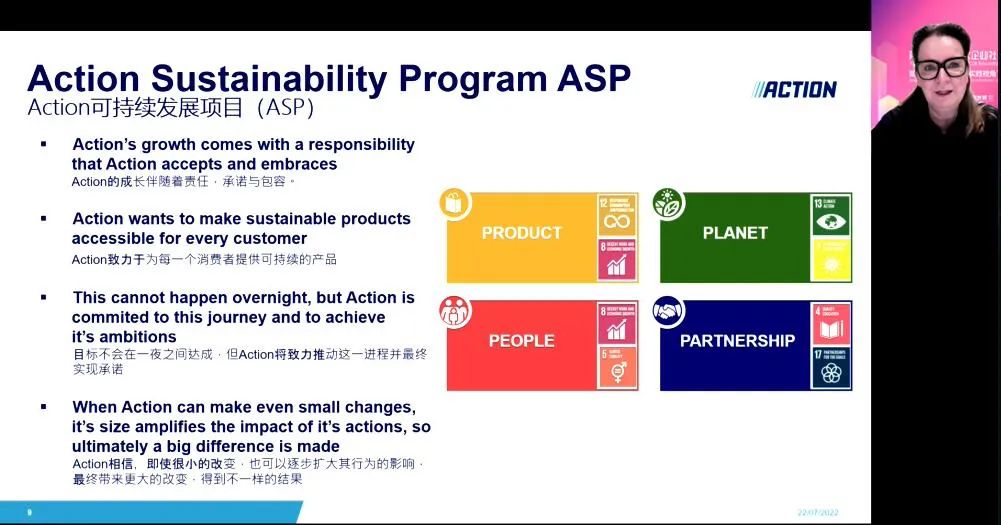
Action is one of the fastest growing retailers in the world. According to Jeannette Paulusma, Direct Import Quality & Sustainability Manager, Action Holding B.V., Action initiated the Action Sustainability Program (ASP), and proposed a series of goals in people, planet, partnership and product. These goals mainly include 1) energy usage in stores renewable by the end of 2022; 100% recyclable packaging by 2025; 2) 100% transparency on labor conditions within the supply chain by 2025; 3) reducing emissions from our own operations by 50% by 2030. In addition, Action commits to identify and mitigate environmental risks caused by resource availability, biodiversity, climate and livelihood of local communities in its supply chain. Action promises 100% of direct producers are assessed on environmental impact in 2023.
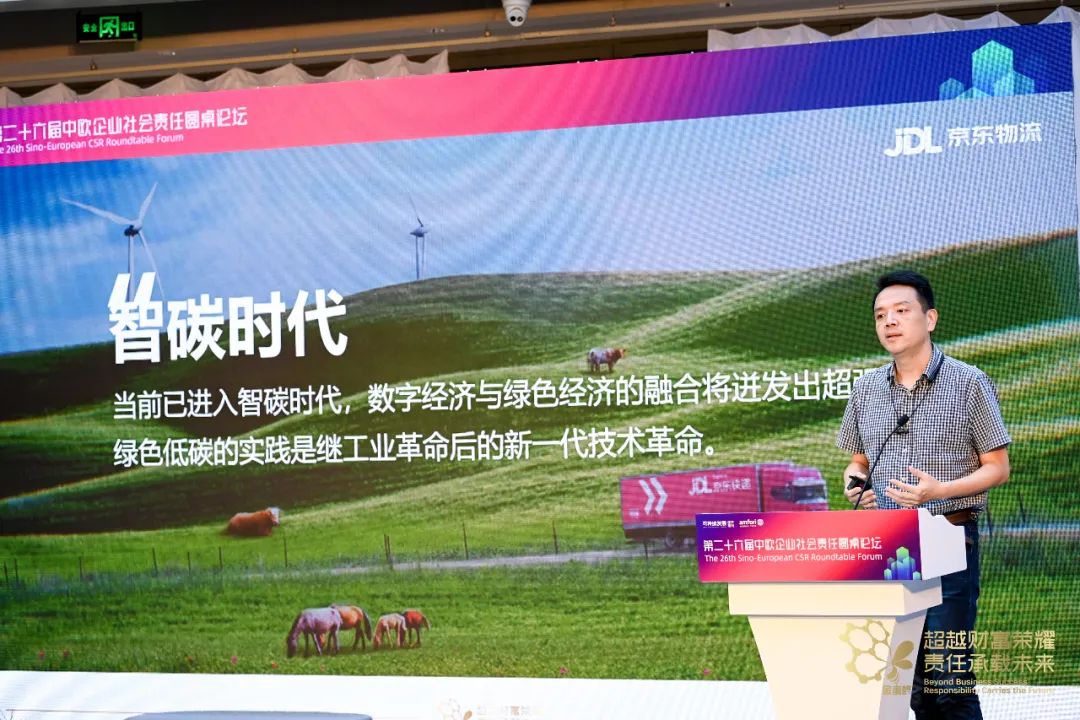
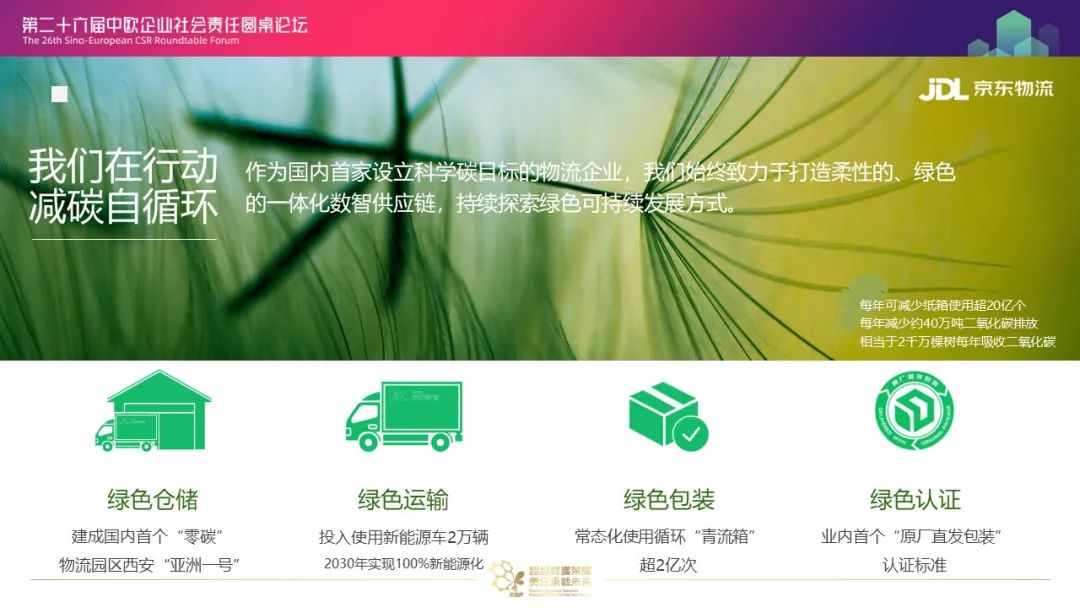
Steven Li, Vice President and General Manager of International Logistics Strategy and Large Account Department of JD Logistics, shared the integrated green supply chain practice of JD Logistics. JD Logistics is the first logistics company in China to set up a scientific carbon target and is always committed to building an integrated digital and intelligent supply chain featured by flexibility and eco-friendliness. In 2017, JD Logistics, together with nine brands including P&G, Nestle and Unilever, launched the green supply chain initiative - Green Stream Initiative, which was to achieve low-carbon development, energy saving and consumption reduction in such aspects as packaging, storage and transportation through cooperation between JD Logistics and supply chain partners. At the same time, JD Logistics also actively participated in the development of various industry standards such as the formulation of Basic Requirements of Mail and Express Packaging to pass more conceptual values and practical achievements to the industry.
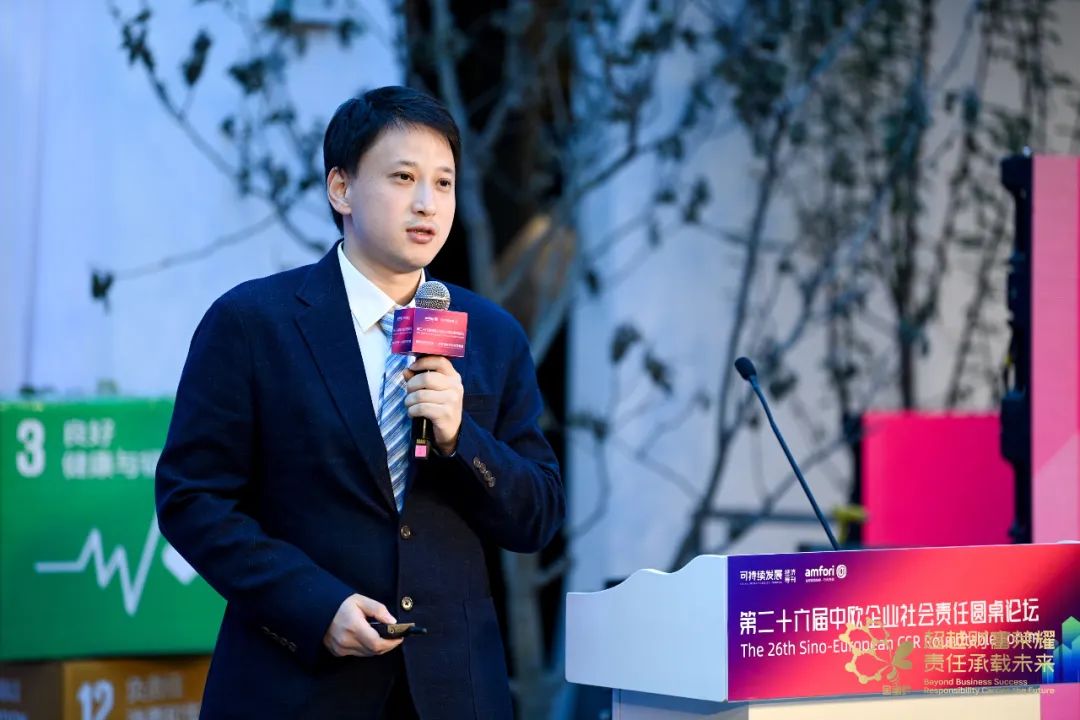
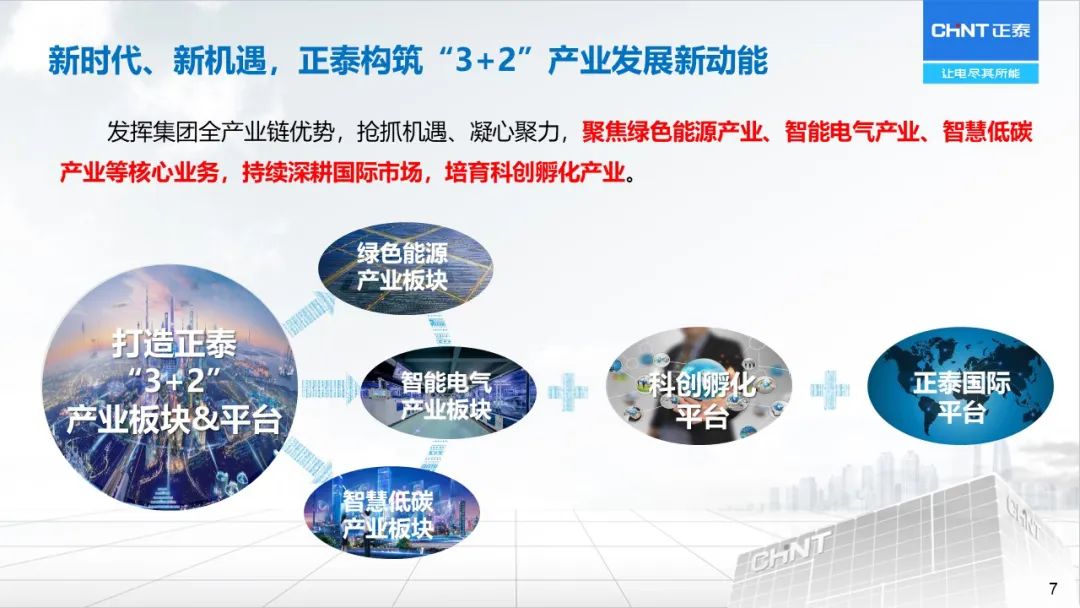
Against a backdrop of the digital era, while moving towards the carbon peak and carbon neutrality goals, China proposes to build a new electric power system dominated by new energy, which will bring new changes in the "power, grid, load and storage" business model as well as new opportunities for market development. Eddie Gu, Director of the PR Dept. and the Global Key Accounts of CHINT Global, introduced that CHINT focuses on the electric power equipment and new energy industry chain. By intelligently manufacturing the low-voltage electrical appliances, cultivating future factory demonstration projects, building intelligent electrical industry brains, creating smart low-carbon industries, promoting industrial park- and city-level smart micro-grid solutions, and innovating in the "PV+" development model, the company promotes green industrial chains and strives to build low-carbon green parks to achieve economic, ecological, and social efficiency.
Multi-party collaboration to accelerate building low-carbon supply chains

At present, nationwide measures have been taken to promote green development. However, it is undeniable that the development levels and modes in different countries and regions is unbalanced. In today's increasingly globalized economy, there is a pressing need for concerted cooperation among all parties to promote the development of global green trade.
Hu Kehua, Director of Sustainability Stewardship Programs, China Textile and Apparel Industry Council (CNTAC), introduced that in building green supply chains, CNTAC plays the guiding role to transform and upgrade the industry towards low-carbon and sustainable development through the formulation of industry standards. In the meantime, under the consensus of carbon reduction, green products and brands are created to find the path towards the achievement of sustainable value based on business logic.
He Hongliang, Deputy Secretary General of China Electronics Standardization Association (CESA) and Secretary-General of CSR Committee of CESA, pointed out that based on China's actual conditions, CESA should be responsible for the following five aspects: support the superior government departments; formulate standards; promote industry efforts; empower enterprises; strengthen interaction and cooperation with international organizations. “CESA would continue to empower enterprises in the expansion of low-carbon transformation,” he added.
Du Yonghai, General Manager of the Green Living & Innovation Division of HKPC, emphasized that carbon reduction by enterprises requires full participation. The first step is policy promotion, the second is technological innovation and the third is carbon reduction at source. HKPC has been helping manufacturing enterprises to improve efficiency through technological innovation and service innovation. It has specially provided advanced environmentally friendly and green technology for them. In addition, it helps SMEs in financial support and talents training.
"Coping with the climate crisis and realizing low-carbon transformation of the supply chain should be a common development direction for all companies, which also reflects the significance of building a green supply chain,” said Yu Zhihong, President and Editor-in-chief of China Sustainability Tribune, in his conclusion at the end of the forum. He mentioned that supply chain collaboration is a complex and huge system. To empower the supply chain, firstly, a group of leading companies need to become the pioneers in building supply chain partnership; secondly, we need to deepen the concept and thinking of circular economy and strengthen the digital innovation; finally, industry associations need to play the guiding role and provide standards and tools to support companies.
Linda Kromjong reiterated the importance of sharing: "Partnerships are the key to finding solutions. Actions speak louder than words. Only working together can we build a sustainable supply chain for the common good."
 Scan the QR code for replay
Scan the QR code for replay
 Scan the QR code for speaker profile
Scan the QR code for speaker profile